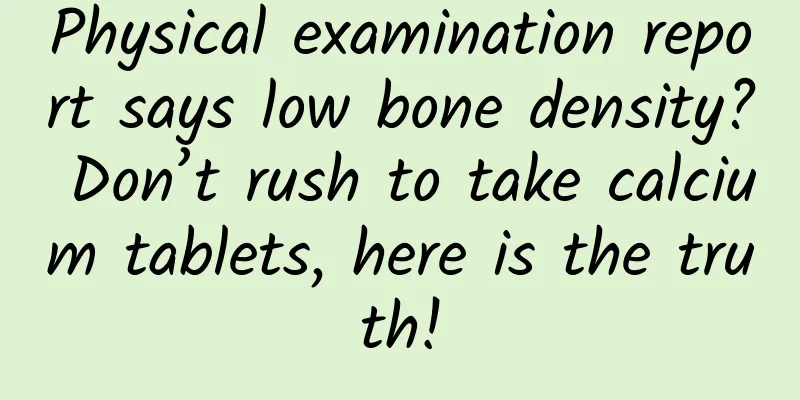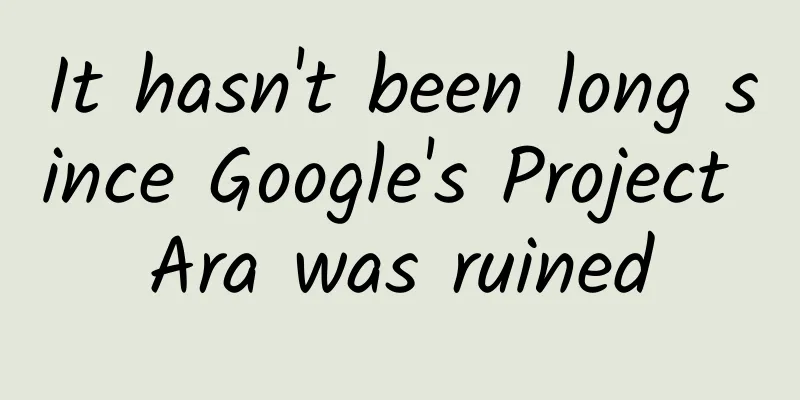Physical examination report says low bone density? Don’t rush to take calcium tablets, here is the truth!

|
When low bone density is found during a physical examination, many people's first reaction is to "quickly supplement calcium." However, is this approach really scientific? Today, let's talk about the truth behind low bone density and how to deal with it scientifically. 1. Low bone density ≠ calcium deficiency Bone density is an important indicator of bone mineral content, but it is not completely equivalent to calcium deficiency. Bone health depends not only on the calcium content, but also on factors such as bone structure, the quality of bone collagen, and the balance of bone metabolism. In fact, low bone density may be caused by a variety of reasons, such as insufficient vitamin D, lack of exercise, long-term use of certain medications, and even some chronic diseases. 2. Risks of blindly supplementing calcium Many people think that as long as they take more calcium, their bone density will naturally increase. However, studies have shown that the effect of calcium supplementation alone is actually very limited. What's worse, excessive calcium supplementation may cause a series of health problems, such as kidney stones and vascular calcification. Especially for the elderly, the daily calcium intake is recommended to be controlled at 1000-1200 mg. Exceeding this range may increase the risk of cardiovascular disease. 3. How to deal with low bone density scientifically? (1) Dietary adjustment High-calcium diet : Eat more calcium-rich foods such as dairy products, beans, nuts, and dark green vegetables. Supplement vitamin D : Vitamin D can significantly enhance calcium absorption, which can be supplemented by sun exposure (at least 20 minutes a day) or eating foods rich in vitamin D (such as milk, egg yolks, fish, etc.). Balanced diet : Keep a varied diet and avoid high-salt, high-fat diets, as high salt can accelerate calcium loss. (2) Exercise intervention Weight-bearing exercises : such as walking, jogging, dancing, etc. These exercises allow the body to bear its own weight, stimulate bone growth, and help increase bone density. Muscle strengthening exercises : Using elastic bands, dumbbells, etc. for strength training can increase muscle strength and reduce the burden on bones. Balance and flexibility training : Exercises such as yoga and Tai Chi can help improve body coordination and balance, and reduce the risk of falling. (3) Regular check-ups and professional guidance <br /> If your bone density is low, it is recommended that you go to a regular hospital for a check-up to rule out the influence of other diseases. Under the guidance of a doctor, choose appropriate supplements or medications according to your specific situation. 4. Conclusion Low bone density does not mean that you have to take calcium supplements like crazy. Blind calcium supplementation not only has limited effect, but may also bring health risks. Scientific diet, reasonable exercise and regular health checks are the right way to maintain bone health. So, when you see "low bone density" on the physical examination report, don't panic, start with your lifestyle to make your bones healthier! |
Recommend
How to create a WeChat vegetable selling app in Guangzhou? How to sell vegetables through WeChat mini program?
Today's industries are diverse, and many new ...
This dolphin attacked more than 40 people, and it just wanted to make friends?
On the Tsuruga Peninsula in Fukui Prefecture, Jap...
How can marketing promotion achieve results beyond expectations?
A good marketing strategy is to minimize the conv...
Tencent technical tips! How to make a terrifying HTML5 page
The whole text is full of valuable information an...
The changes are huge? What are the changes in Android 5.0?
Less than a year after the last major update of t...
What issues should be paid attention to in Zhaoqing website construction? Don't be fooled!
Website construction is developing rapidly now, a...
Product creation and verification operations for Douyin local life services
Douyin’s local life service makes targeted invita...
Manual translation of the basic principles of CG rendering [HD quality with material]
Manual translation of the basic principles of CG ...
Casual games are also powerful. From "Journey" and "LittleBigPlanet 3" to look at the Chinese version of PS4 casual games
Opening the game download interface of the Chines...
The Value of Code Review — Why, When, and How?
[[143001]] For many companies, code review is an ...
Did Changsha win the star in 2022? When is the exact time for picking stars? Star-picking conditions are attached!
On April 6, the Hunan Huaihua Communication Big Da...
「Guangzhou seo」 How much does it cost to do website SEO ranking in Guangzhou?
This mainly depends on what keywords you need. Th...
Is it better to sleep with the window open or with the air conditioner on when it's hot? The doctor's answer is surprising
In the hot summer nights, the temperature is so h...
Before you read this, you definitely don’t understand what real ASO is.
As everyone knows, ASO refers to the search optim...









